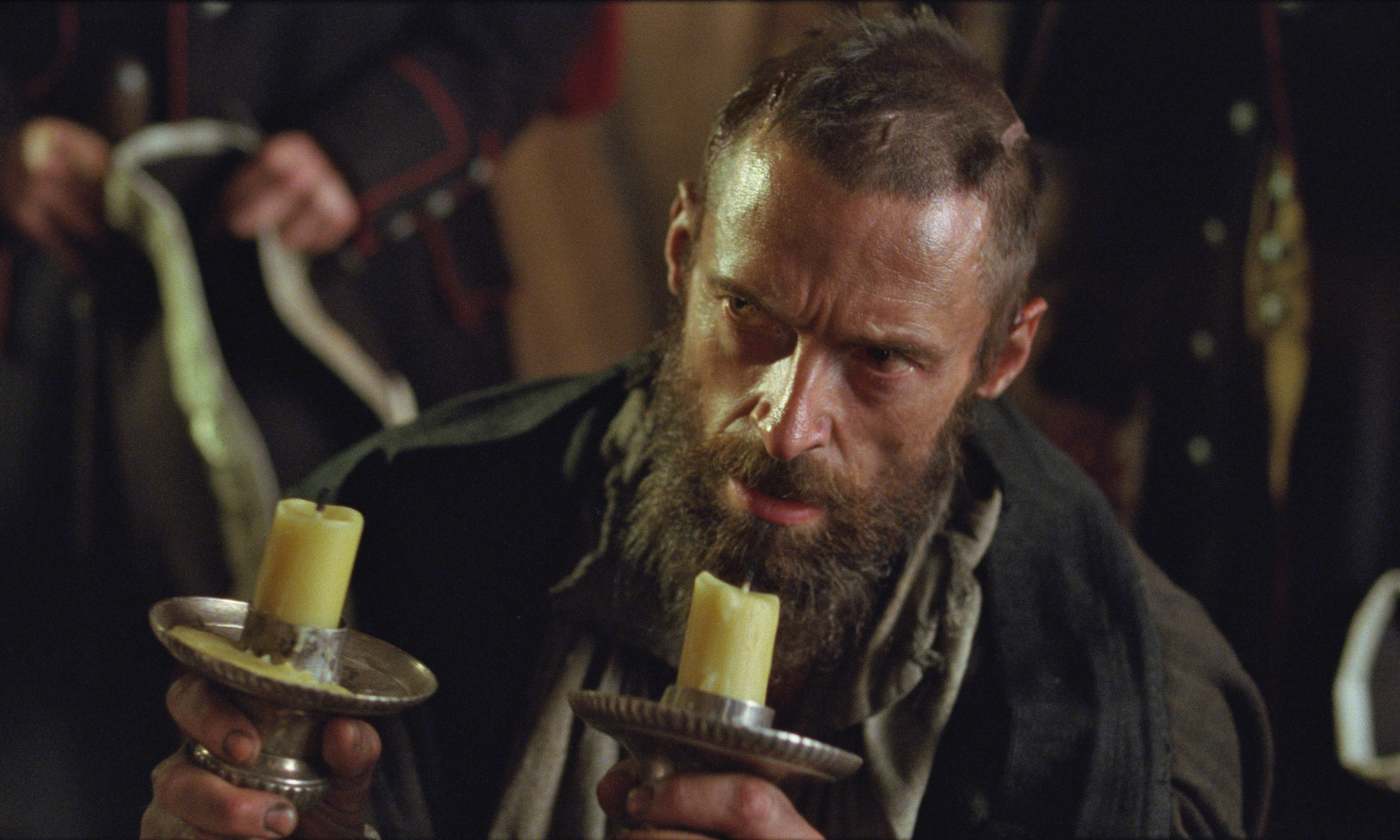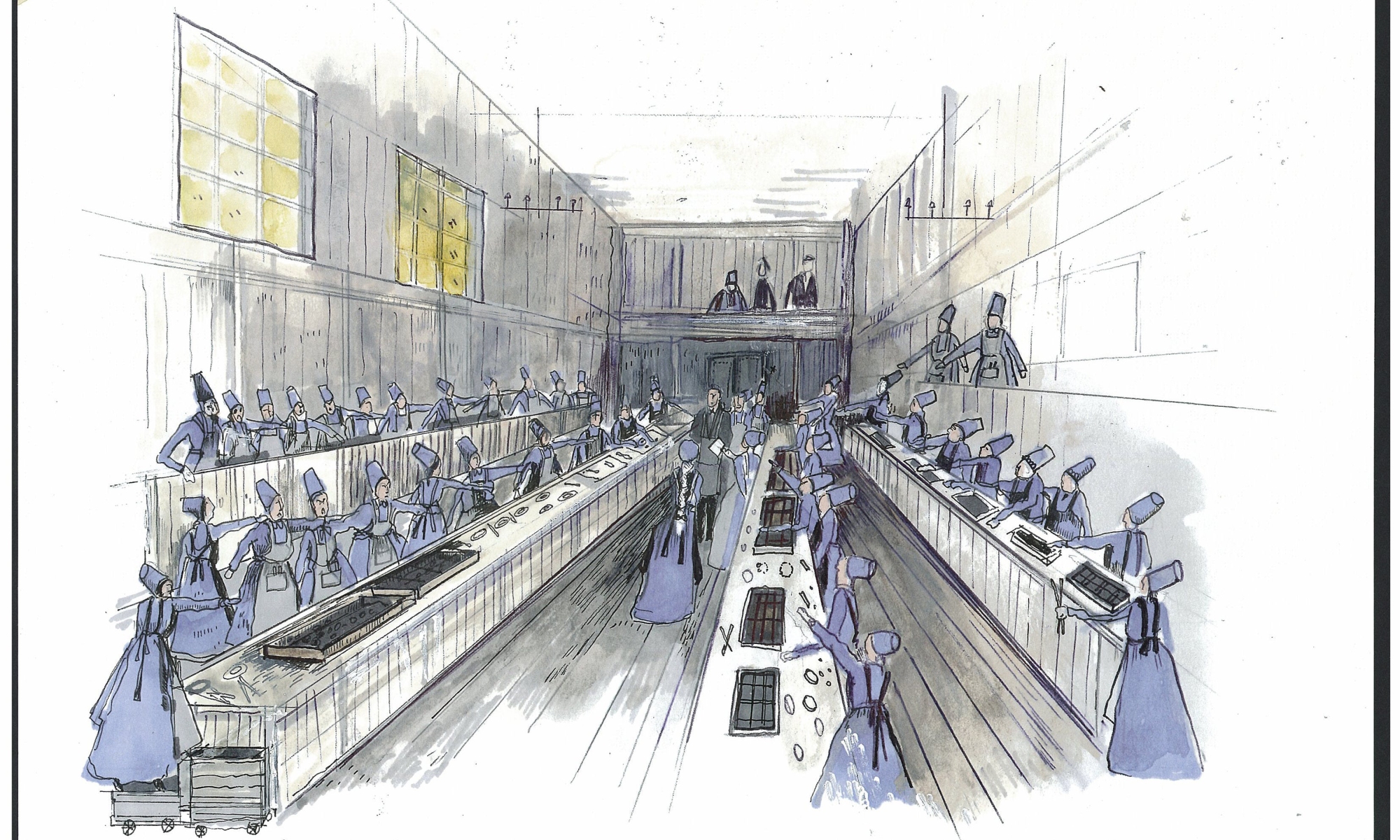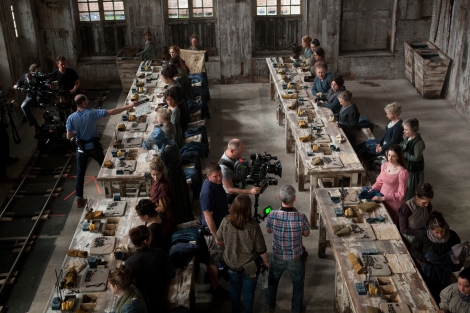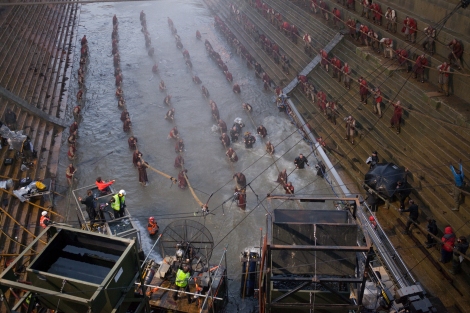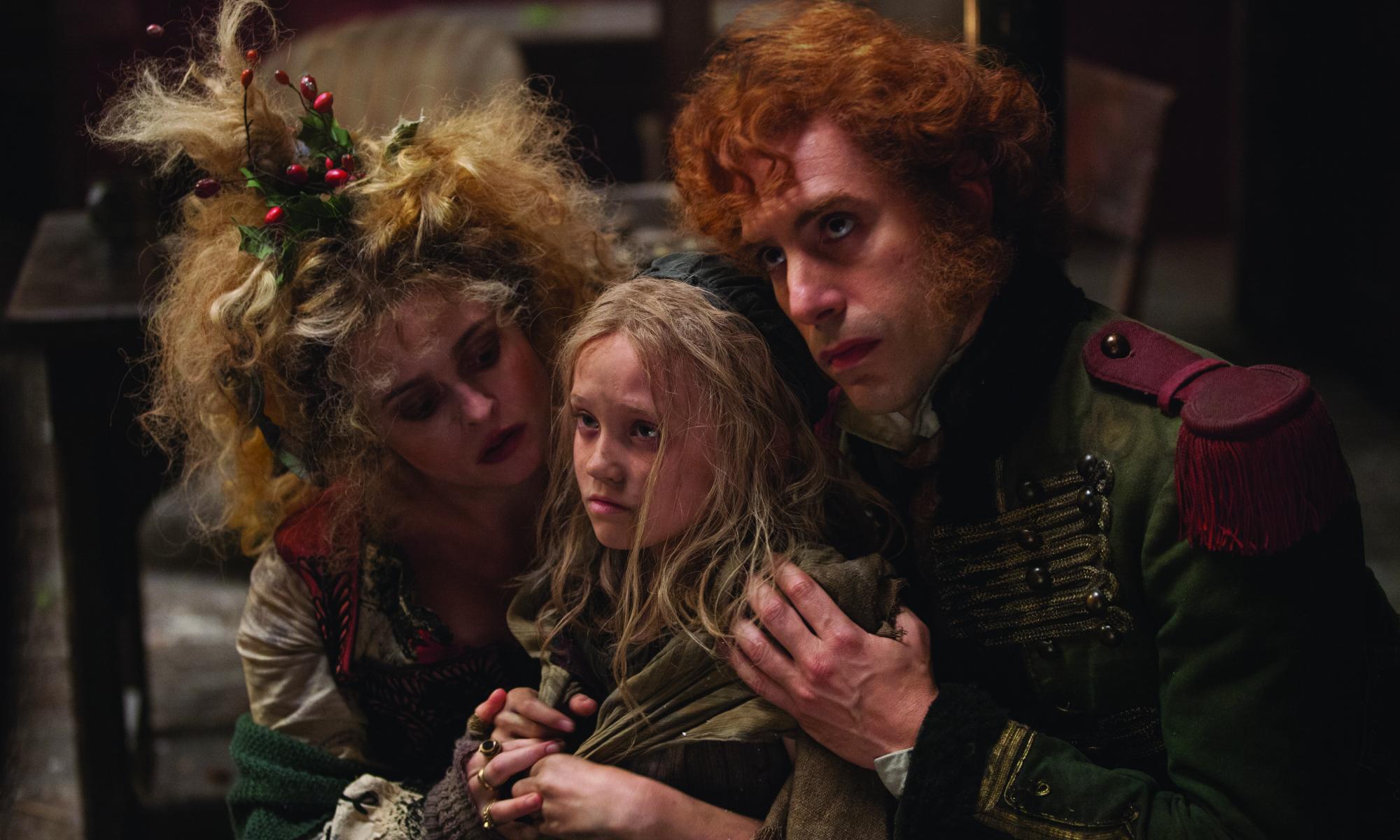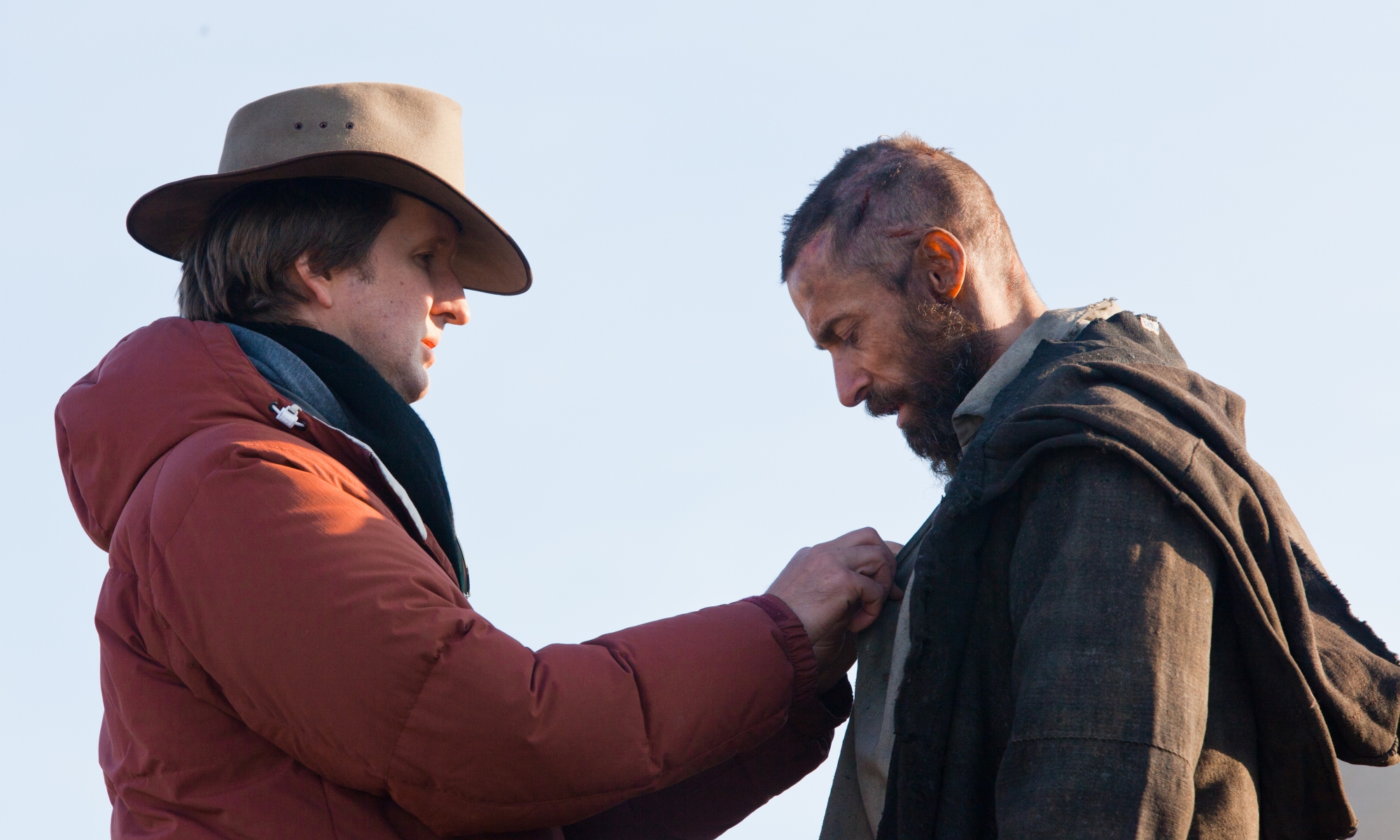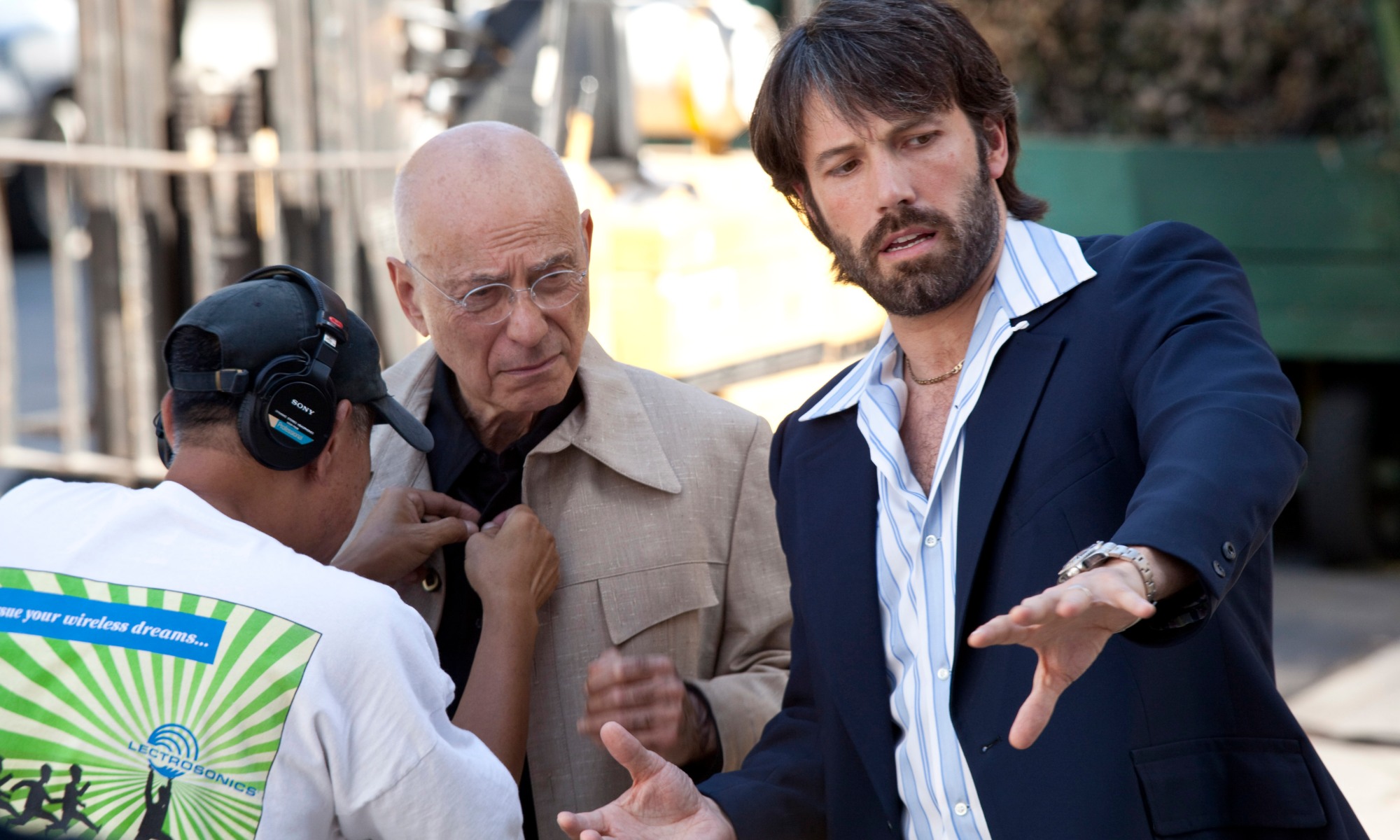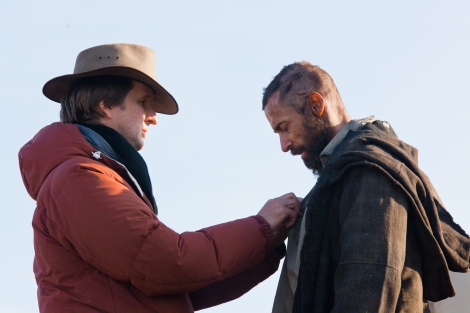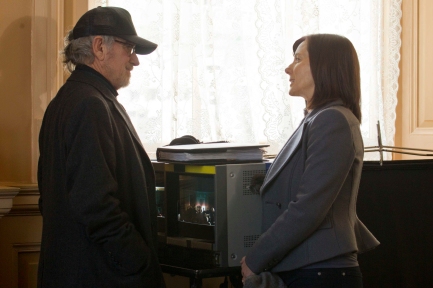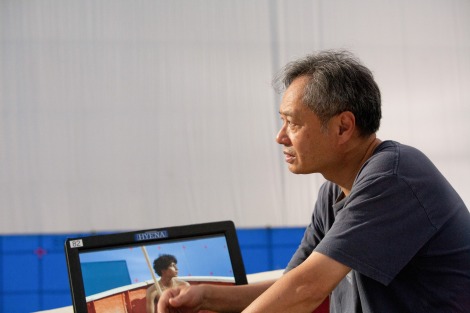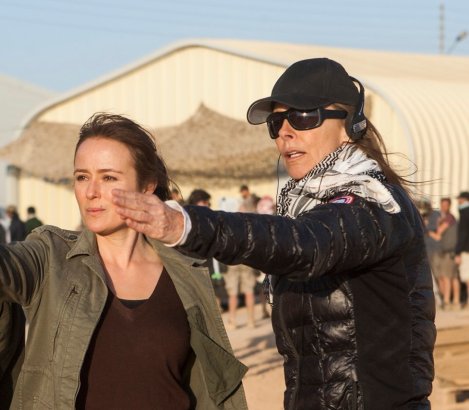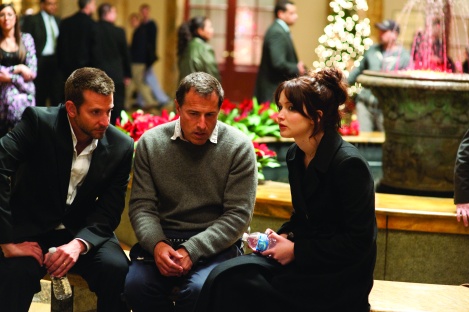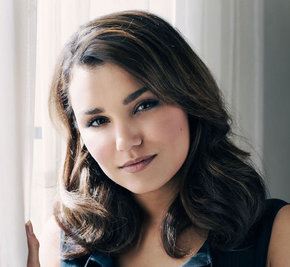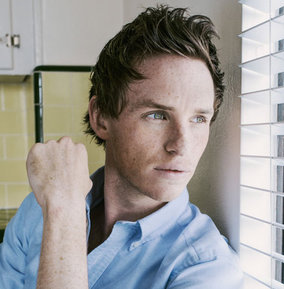Cari Lynn is an AwardsLine contributor. This article appeared in the Jan. 2 issue of AwardsLine.
When producers Eric Fellner and Tim Bevan of Working Title Films became guardians of the longest-running musical in history, they knew they were dealing with precious—and risky—material. Les Misérables, after all, has played in more than 40 countries and has been seen by more than 60 million theatergoers. But Fellner and Bevan were well aware that musicals adapted for the screen are tough sells at the boxoffice.
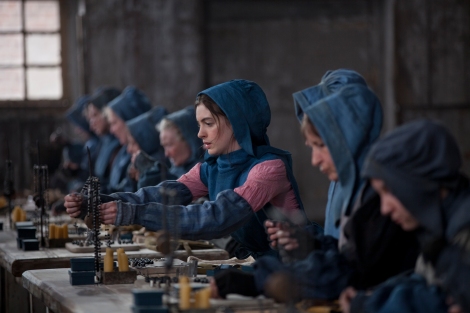
Over the decades, there had been numerous failed attempts at a Les Mis film adaptation, with Oscar-nominated director Alan Parker (Fame) coming close in the 1980s (he went on to direct the film adaptation Evita in 1996). “No one could unlock the key of how to do it,” explains lyricist Alain Boublil, who cowrote Les Misérables the musical with composer Claude-Michel Schönberg. But it was a series of fortuitous events that caused Working Title to think now might be the right time to make a film work: On Britain’s Got Talent, Susan Boyle breathed new life into the Les Mis song “I Dreamed a Dream,” not only creating a chart-topping hit from the musical for the first time, but also sparking a resurgence at the theater boxoffice. Plus, the original producer and musical-theater legend Cameron Mackintosh was planning Les Mis’ 25th anniversary concert at London’s 02 Arena, casting Nick Jonas as Marius, which would broaden the appeal to a whole new generation. “The collision of these events reopened the possibility of, yes, we could do the film,” Mackintosh says.
The Hollywood Foreign Press and Screen Actors Guild wholeheartedly agreed that the gamble paid off, bestowing four Golden Globe nominations (including best comedy or musical, Hugh Jackman for best actor, Anne Hathaway for supporting actress, and best original song), and four SAG Award nominations (including the coveted ensemble award, Hugh Jackman for best actor, Anne Hathaway for supporting actress, and stunt ensemble).
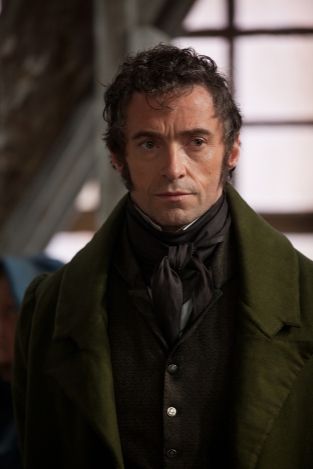
Nevertheless, the phenomenon of Les Mis began humbly in 1978 when Boublil and Schönberg, two pop-song writers living in France, decided to collaborate on a story based on Victor Hugo’s 1862 tome. “We were caught by the virus of musicals, and in France there were no musicals, so we invented how one should be,” explains Schönberg. “I wanted to write a proper operatic score with a big subject and not songs that were linked.” Their stage production wasn’t long-lived, but a concept album made its way to Mackintosh, who was then producing Cats, and who immediately recognized the potential. With English translation by James Fenton and completed by Herbert Kretzmer, Mackintosh premiered Les Mis on the London stage in 1985, where it’s continuously run ever since.
When Working Title Films (Four Weddings and a Funeral, The Big Lebowski, Elizabeth: The Golden Age), which has a production deal with Universal, approached Mackintosh, everyone hoped this collaboration would stick. Working Title agreed that the original team of Schönberg, Boublil, and Kretzmer would remain intact, but screenwriter William Nicholson (Gladiator, Elizabeth: The Golden Age) was brought in to do an adaptation.
It was Nicholson who happened to mention the topic to director Tom Hooper while they were working together on another project, and Hooper rallied for a meeting with Mackintosh. Hooper at the helm didn’t seem the most logical choice—The King’s Speech hadn’t yet been released, and Hooper admits lacking musical credits. “I had not even directed a pop video,” he says. Although, he maintains he did have some musical experience. “At 10 years old, I was cast in two musicals, and through that, I discovered a love of musicals. I also learned I wasn’t a good actor, so I was glad to get that out of way.”
Just as Hooper had no musical experience, Mackintosh had no film experience, but they soon discovered they were on the same page. “When Tom and I first met, he spoke passionately about how he would do a film, and he felt it should be recorded live,” says Mackintosh. “I felt passionately about that, too. This was the clincher because Tom wanted to take what was a big leap in the dark.” In his musicals, Mackintosh had a penchant for bringing in directors with limited musical experience, such as Sam Mendes and Trevor Nunn. Moreover, Hooper had directed the HBO miniseries John Adams, which Mackintosh had admired for its large scale and gritty realism. “I’d been looking for directors over the years, and Tom came to me with a point of view, and I thought, This is the man to do it.” Working Title agreed and didn’t bother showing the script to any other director.
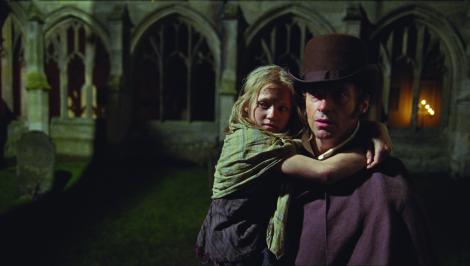
Over a year passed since the first meeting, and by this time, Hooper had won the Oscar for The King’s Speech. “I felt mightily relieved when Tom still wanted to do Les Misérables,” says Mackintosh. “We all met in New York, and Tom saw the chemistry between Alain, Claude-Michel, and myself—we go back 30 years.” This meeting inspired Hooper to pull the dialogue from the film, even though Nicholson’s adaptation had moved him to tears, and instead, do a complete version of the musical.
“Everyone was quite excited to go the braver route of honoring the way the musical was created,” says Hooper. “Musicals are a great game of consequence, of cause and effect, and so much would have to be thrown away to do it in a split form—you might risk losing the very thing that made it a success.”
Hooper put the original team to work modifying the score and composing a new song, “Suddenly.” “I don’t think Claude-Michel and Alain expected to be so involved,” says Hooper. “It was so exciting to realize I was literally re-creating the conditions under which the original creators are reunited. Fans would see that any changes had been done with the original creators’ input.”
The entire team was involved in all casting decisions as well, which included rigorous auditions for every actor. “Almost everyone cast was from the theater,” explains Mackintosh. “I had seen Sacha (Baron Cohen) and Helena (Bonham Carter) in Sweeney Todd, Hugh (Jackman) and I did Oklahoma!, and Russell (Crowe) I knew from when he left grammar school, and I saw him in musicals in Australia. I’d known Anne (Hathaway) personally for many years, and knew she was born into Les Mis [Ed. note: Her mother had performed the role of Fantine]. What Tom needed were people who were so comfortable in singing that they could reinterpret the songs with acting. This wouldn’t have worked with just straight actors.”
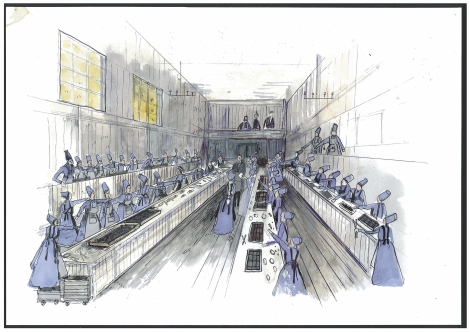
For Mackintosh, the most challenging aspect was finding the balance between heightened drama, while still preserving authenticity. “It needed to seem real but with an element of style,” he says. “The style had to be similar to that of the musical, where we’re gliding in and out of spoken word and singing so seamlessly that you don’t realize they’re singing most of the time. Cinema is a medium of realism, and we had to find our brand of realism.” At one point, it was suggested to do the film in 3D, but Mackintosh vetoed that. “I felt it was already in 3D—we didn’t have to impose it.”
The live singing posed significant technical challenges, and each department had to work carefully together, creating, for example, costumes that didn’t rustle and floorboards that didn’t make any sound. “Nobody had done this before,” explains Schönberg, “and each department had to have the best people to make it work: The best musicians, the best conductor, to put music on the voices, it must be perfectly in sync.”
After several weeks of rehearsals, the 12-week shoot commenced, filming in historical locations throughout France and England and at Pinewood Studios outside of London.
The entire cast went through the ringer—almost literally in some scenes, with water from the cold Portsmouth channel pouring in over them. “The actors I chose were the kind who come unbelievably prepared,” says Hooper. “By the time we got to the shoot, they had already done more than I’d asked them to. They were conscientious, incredibly sensible, and lived like monks, or at least like opera singers. I promise you, it’s not anywhere near easy what they’ve done.”
The cast also benefitted by having the original team on set. “It was such a treat for us because Alain and Claude-Michel were there every day,” says Eddie Redmayne, who plays Marius, “and you got to ask them where something came from, or, if you did a reinterpretation of something, ‘Do you think that holds?’ ” Colm Wilkinson, who originated the role of Valjean both in London and on Broadway, had a cameo playing the kindly bishop, and many of the smaller roles went to actors from various companies of the musical.
“It was an amazing amalgam of brilliant people I was exposed to on Tom’s team, and my rehearsal team from the theater was there, and we worked in tandem,” says Mackintosh, who had joint final cut with Hooper and Fellner on the $61 million film. “It was a collaboration and couldn’t have been any other way. It was the best way.”

